
What Is Uterine Cancer?
Uterine Cancer is a rare cancer that starts in the muscle and supporting tissues of the uterus (womb).Cancers that start in epithelial cells, the cells that line or cover most organs, are called carcinomas. More than 95% of uterine cancers are carcinomas. Carcinomas starting in the endometrium, the lining of the uterus, are endometrial carcinomas.
Know More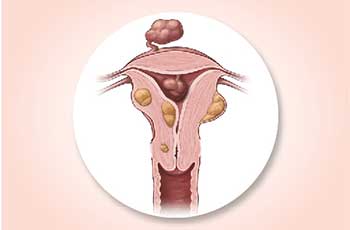
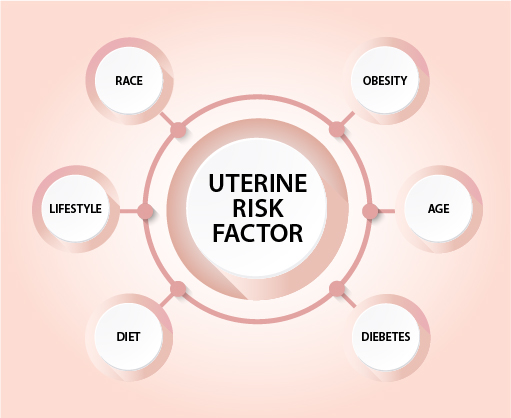
Risk Factors
High-energy (ionizing) radiation used to treat some cancers can damage cells’ DNA, sometimes increasing the risk of developing a second type of cancer. If you've had pelvic radiation, your risk for developing uterine Cancer is increased. These cancers usually are diagnosed 5 to 25 years after you've been exposed to the radiation.
Know More
Signs and Symptoms
In most cases, the possibility of uterine Cancer is suggested by certain symptoms. These symptoms don't always mean that a woman has uterine Cancer. In fact, they are more often caused by something else, such as non-cancerous changes in the uterus (like fibroids), pre-cancerous overgrowth of the endometrium, or endometrial carcinoma. Still, if you're having these problems, see a doctor to find the cause and get any needed treatment.
Know More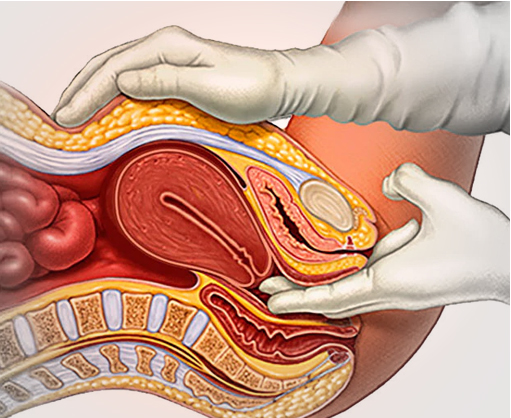
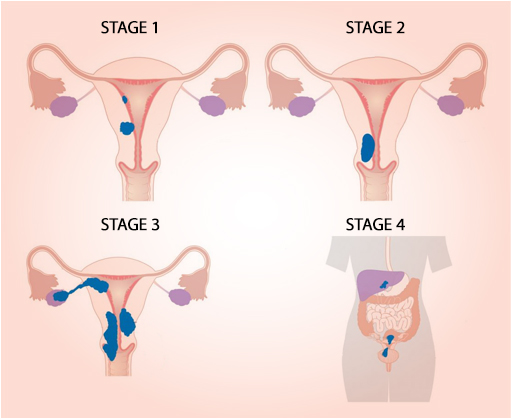
Stages
The staging system in the table below uses the pathologic stage (also called the surgical stage). It is determined by examining tissue removed during an operation. Sometimes, if surgery is not possible right away, the cancer will be given a clinical stage instead. This is based on the results of a physical exam, biopsy, and imaging tests done before surgery. The system described below is the most recent AJCC system. It went into effect January 2018. It is specific for staging two types of uterine sarcomas: leiomyosarcoma and endometrial stromal sarcoma.
Know More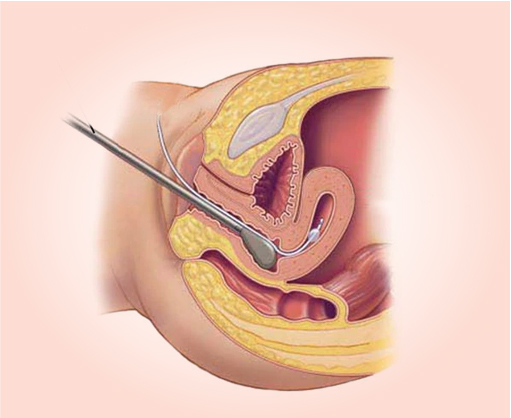
Treatment
The treatment recommended by your doctor will depend on the results of your tests, the type of cancer, where the cancer is, whether it has spread, your age and your general health. Cancer of the uterus is often diagnosed early, before it has spread, and can be treated surgically. For many women, surgery will be the only treatment they need. If the cancer has spread beyond the uterus, radiotherapy, hormone treatment or chemotherapy may also be used.
Know More